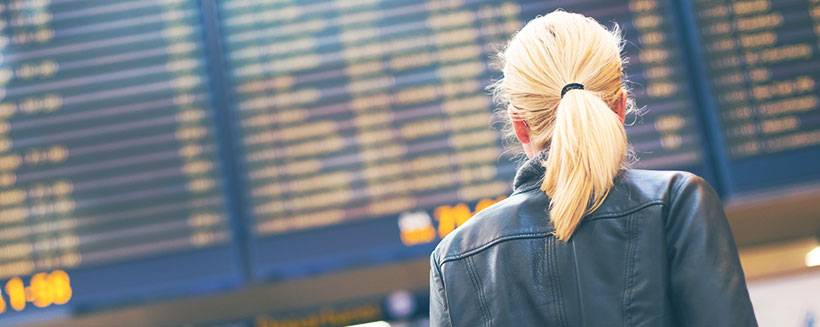
This Rising Fraud Threat is Targeting the Airline Industry
Online travel booking is a major developing market. In fact, online bookings are growing at a faster rate than the travel industry itself. This is especially true for mobile devices, as travel purchases made using a mobile device are up 60% year-over-year.
Given that 63% of consumers rank travel as their highest-value regular purchase, it’s not hard to see why fraudsters are increasingly attracted to this growing market. One threat in particular, friendly fraud, is growing quickly; however, most airlines’ attention is unfortunately focused elsewhere.
Friendly Fraud is Growing Fast
Airlines have been fighting back against eCommerce fraud for years, but the problem continues to grow. The number of travel companies reporting that fraud is a problem increased by 26% between 2012 and 2013. However, the number of companies experiencing increased fraud exposure rose by 49% in same period.
Part of the problem is that one of the fastest-growing threats, friendly fraud, often goes overlooked. This is because merchants can’t distinguish it from legitimate chargebacks that arise from unauthorized transactions. Airliners tend to focus their attention on sources of criminal fraud, leaving themselves largely unguarded against friendly fraud.
The Cost of Friendly Fraud for Airline Ticket Sellers
Merchants often assume that chargebacks occur as a result of criminal fraud, and that once a cardholder files a chargeback, there is nothing left that can be done. The reality, though, is more than 80% of all chargebacks are actually instances friendly fraud.
Looking at the airline industry as compared to the rest of the eCommerce environment, we can see direct parallels in chargeback trends over the last few years. It’s clear that friendly fraud is to blame.
The airline industry lost $763 million in 2013 as a direct result of chargebacks, up from $701 million just two years earlier. In addition to this, merchants also shelled out an additional $85 million in operational costs as a direct result of chargebacks.
The research suggests the majority of these chargebacks are actually friendly fraud, which means that the lost revenue can be recovered.
Friendly Fraud in the Travel Industry
Analyzing historical data from other ecommerce industries can help identify emerging threats in the airline and travel industries.
However, airlines have their own unique needs and challenges when it comes to fighting back against this source of revenue loss.
In order to successfully fight a chargeback, a process known as representment, a merchant will need to provide evidence that the original transaction was valid and authorized.
In June 2015, Visa announced that the card network would accept airline-supplied flight manifests as compelling evidence for a chargeback representment.
This new policy proves the payments industry is aware of the threat and is interested in creating a more equitable situation for fraud-burdened merchants. While this intended remedy against friendly fraud is a move in the right direction, it isn’t a definitive solution.
Savvy consumers continue to exploit loopholes and merchants still report significant losses.
Fraud Filters’ Inability to Detect Friendly Fraud
Like other merchants, airlines traditionally used anti-fraud technology to identify criminal threats, such as clean fraud or fast fraud. However, the methods used to identify these threats are ineffective against friendly fraud.
Because friendly fraud masquerades as a legitimate chargeback, there is nothing that fraud filters can do to address the problem. In fact, improperly-deployed solutions might actually make the problem even worse.
Roughly 27% of all airline ticketing transactions are flagged by fraud filters as potential fraud. These transactions are sent through an expensive, time-consuming manual review process, taking an average of nine minutes of review per individual transaction. Even with manual review, the cost of false positives is still massive.
Nearly 3.5% of all flight bookings are rejected by fraud filters, and many of those declined transactions were actually valid. Nearly four in ten cardholders abandon their transaction after being falsely declined, adding up to a total of $118 billion for all eCommerce merchants.
Of course, fraud filters have no impact on friendly fraud. Therefore, relying entirely on static technology for fraud prevention can’t catch all fraud attacks.
The Answer: Multi-Layer Fraud Prevention
The solution isn’t for airlines to ditch fraud filters, but rather to make fraud filters work better.
Airline ticket sellers need a multi-layer risk management strategy. Merchants need to incorporate fraud filters with dynamic rules, as well as other technologies, to fight back against chargebacks and other risk sources.
By neglecting to address friendly fraud as aggressively as other threats, airlines enable consumers to continue taking advantage of this industry loophole. In other words, the longer this problem goes without a solution, the worse it will continue to get. Merchants must take action now.
Only by creating a comprehensive approach that targets all of the various sources of eCommerce risk can airlines safeguard their revenue.
